
Russian billionaire Oleg Deripaska, a Putin ally, once controlled Russia’s largest aluminum producing companies. Interestingly, this mysterious man has ties to figures on both sides of the Trump/Russia collusion story. He was once a client of Paul Manafort, President Trump’s former campaign manager. He has also been a client of Christopher Steele, the author of the infamous Steele dossier. And, along the way, Deripaska has acted as a friendly cooperator to the FBI through which he’d become acquainted with former FBI Deputy Director Andrew McCabe.
Deripaska and the three companies he once controlled were sanctioned by the Trump administration to financially punish Putin for meddling in the 2016 U.S. election. In January, after Deripaska’s stake in each company had been reduced, the Treasury Dept. lifted sanctions against the companies. However, the sanctions against Deripaska himself remain in force.
The oligarch agreed to an interview with The Hill’s John Solomon, who now has even more questions for Robert Mueller when he appears before Congress in two weeks.
Deripaska confirmed to Solomon a story he had heard over a year ago. FBI agents had most definitely interviewed him in September 2016. Deripaska said he told agents he strongly doubted that the Trump campaign, through Manafort, had colluded with Russia to steal the election. Deripaska said:
I told them straightforward, ‘Look, I am not a friend with him [Manafort]. Apparently not, because I started a court case [against him] six or nine months before … . But since I’m Russian I would be very surprised that anyone from Russia would try to approach him for any reason, and wouldn’t come and ask me my opinion.’
I told them straightforward, I just don’t believe that he would represent any Russian interest. And knowing what he’s doing on Ukraine for the last, what, seven or eight years.
Solomon asks us, why should we care that Deripaska told the FBI he did not believe the Trump campaign had colluded with Russia during the election?
The most important reason is that, according to Manafort’s attorney Kevin Downing:
Deripaska’s interview with the FBI reportedly was never provided by Team Mueller to Manafort’s lawyers, even though it was potential proof of innocence. Manafort, initially investigated for collusion, was convicted on tax and lobbying violations unrelated to the Russia case.”
That omission opens a possible door for appeal for what is known as a Brady violation, for hiding exculpatory information from a defendant.
Downing contacted Solomon after reading one of his articles and explained:
Recent revelations by The Hill prove that the Office of Special Counsel’s (OSC) claim that they had a legitimate basis to include Paul Manafort in an investigation of potential collusion between the Trump presidential campaign and the Russian government is false. The failure to disclose this information to Manafort, the courts, or the public reaffirms that the OSC did not have a legitimate basis to investigate Manafort, and may prove that the OSC had no legitimate basis to investigate potential collusion between the Trump presidential campaign and the Russian government.
The second reason why this is relevant to Mueller’s testimony goes back to Deripaska’s dealings with the FBI in 2009. Solomon had heard this story a year earlier from one of his FBI sources (and reported on it) and Deripaska confirmed it during their interview.
Note: Robert Mueller was serving as FBI Director during this time.
In 2007, retired FBI agent Robert Levinson had been captured in Iran during a CIA mission.
At the FBI’s request, Deripaska told Solomon he had “spent more than $20 million of his own money between 2009 and 2011 on a private rescue operation to free Levinson. McCabe, then a rising FBI supervisor who was a former colleague of Levinson was one of those who asked him to help.”
Deripaska said, “I was approached, you know, by someone that he is under a lot of scrutiny now — McCabe. He also said that it was important enough for all of them [FBI officials]. And I kind of trusted them.” Solomon wrote:
Deripaska said his privately funded rescue team came very close to a deal with the Iranian captors to secure Levinson’s release but he was told by his FBI handlers that the deal ran into difficulties at Hillary Clinton’s State Department and was scuttled. “I heard that some Russian ‘hand,’ or whatever you call people who are expert on the Russians at the State Department, [said], ‘We just don’t want to owe anything to this guy,’ ” Deripaska told me, adding that he never expected any U.S. favors for his personal efforts to free Levinson.
Solomon asked Deripaska if he believed Levinson was still alive. He replied, “I don’t think so. If Levinson had been alive, he likely would have come home in 2016, after the Obama administration struck a nuclear deal with Iran.”
He told Solomon he “is continuing to investigate what really happened at State with Levinson.”
The fact that Deripaska had spent $20 million to fund Levinson’s “rescue mission raises questions about a conflict of interest. Mueller’s FBI had first received a gift…before Mueller, as special prosecutor, investigated Deripaska’s ties to key figures in the Russia case.”
The story continues. Deripaska said that in 2012, his legal team hired Christopher Steele to conduct research for a lawsuit against him. “It was a research project to support what was the case against me in London. But my understanding is that the lawyers trusted him for some reason, and he was for quite a time on retainer.”
At that time, unbeknownst to him, “Steele was also working for the FBI on a special program to recruit Russian oligarchs to provide intelligence on Putin and Russian organized crime.
He told me that Steele invited him to a September 2015 meeting with some Justice Department officials, under the guise that they might be able to help with the Russian’s long-running battle with State to get visas to visit the U.S. He said the offer to help with his visa problem was a “pretext” to recruit him.
“They actually never talk, you know, about the [visa] problem. They start talking about anything else. They ask, ‘Do you have anything? Give me names. Cases, whatever,’ ” Deripaska recalled.
He said he later was shocked to learn that Steele eventually went to work for the Clinton campaign through Fusion GPS, and the FBI, and spread allegations of the now-disproven Russia-Trump collusion.
Deripaska’s is currently suing to have the sanctions against him reversed and to obtain a normal visa from the State Department.
Solomon asked about the State Department allegations against him. They allege that, “earlier in his life while consolidating power in the aluminum industry, he had ties to Russian mobsters and may have killed or encouraged killing critics.”
Deripaska replied, “There is no evidence. What is there to dispute? Do you believe that I could kill someone 25 years ago and there will be no victims, no corpses, no names?”
And he concludes:
Throughout the interview, it was clear Deripaska chose his words in English carefully. But there was one word he offered only twice — once in response to the Steele dossier’s allegations of Trump-Russia collusion, and the other time to respond to the allegations used to sanction him. “Balderdash,” he insisted.
Now it’s time for Team Mueller to answer the same questions.
July 14th is going to be a very long day for Robert Mueller.


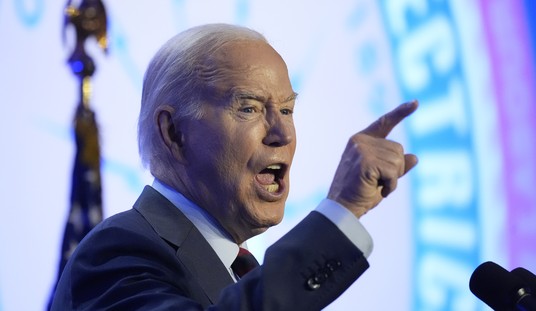
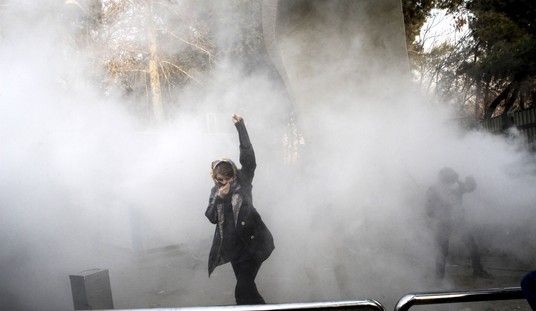
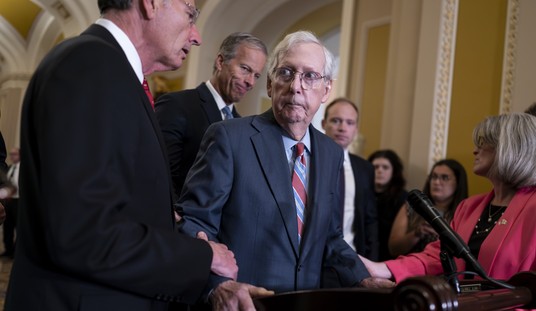
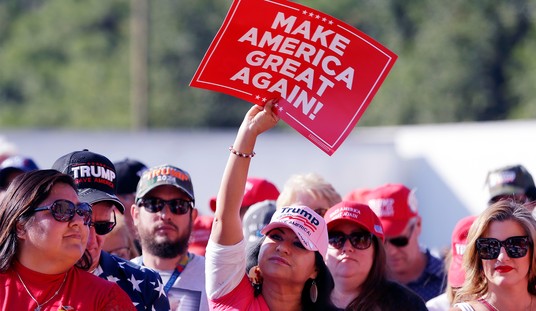
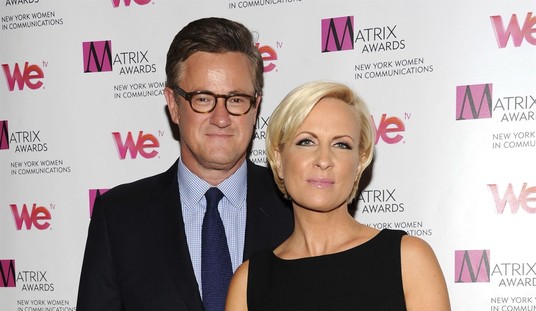

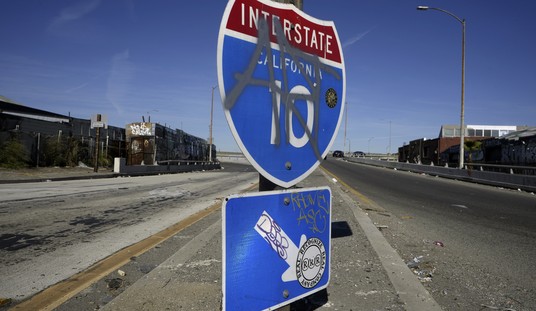




Join the conversation as a VIP Member